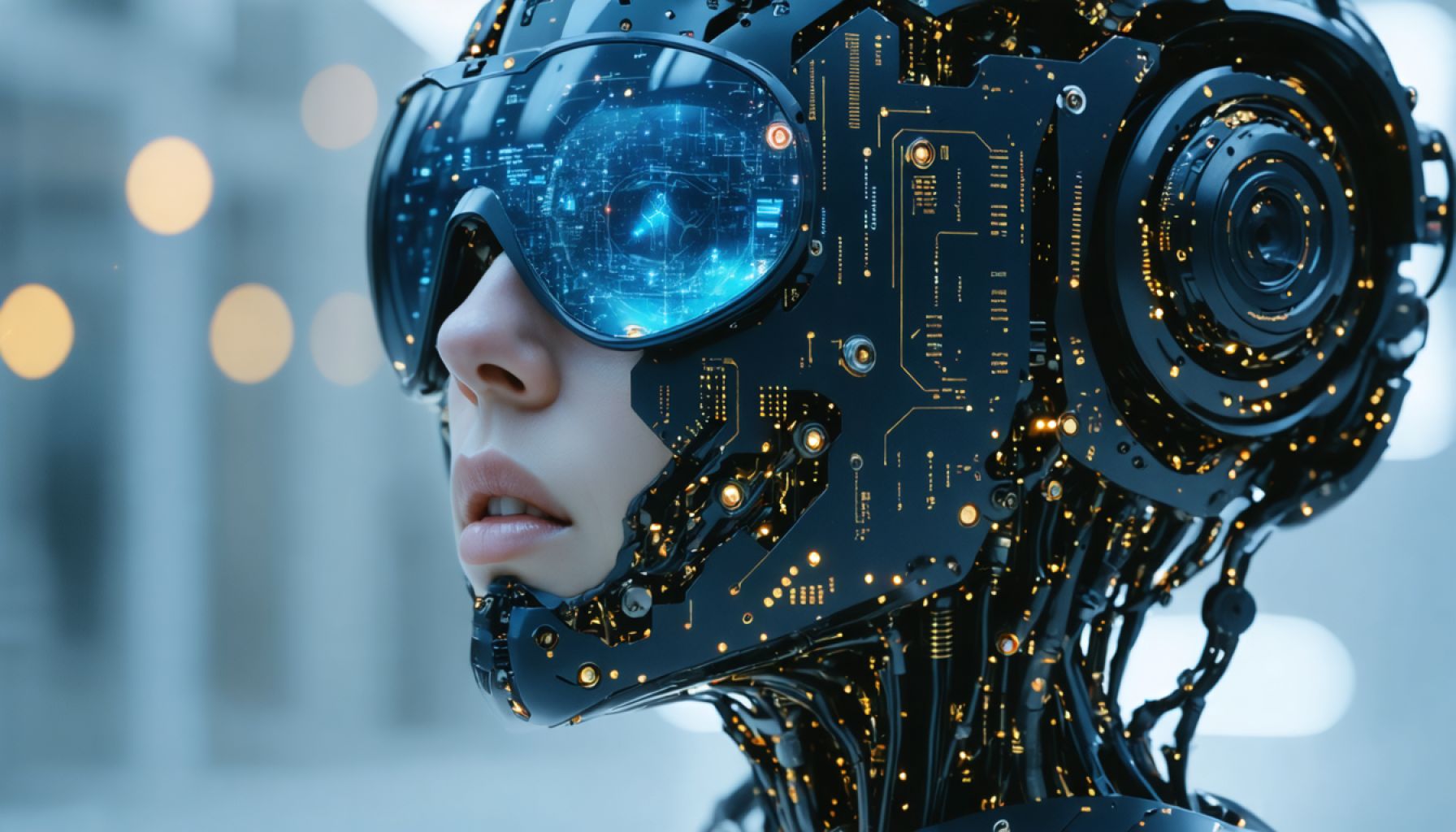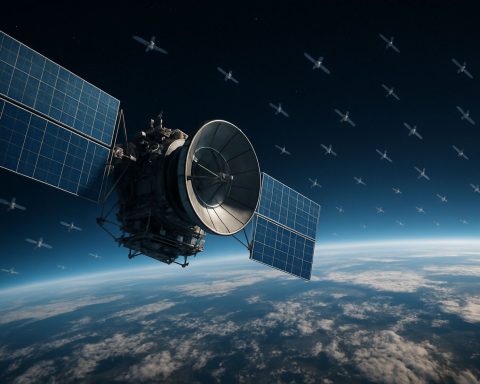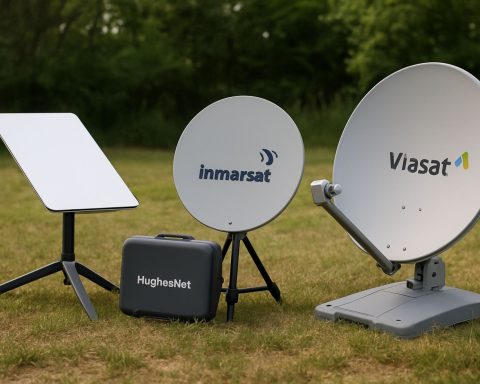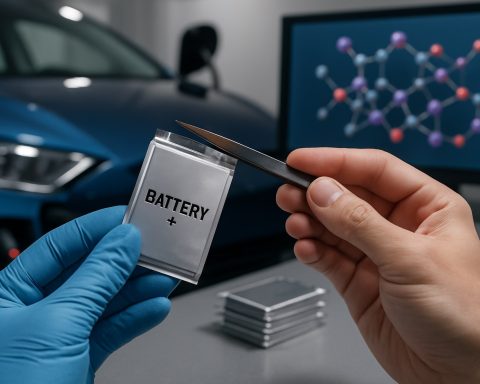- The digital revolution is reshaping daily life through technological innovations, driving significant changes in global interactions.
- Renewable energy advancements, like solar panels and electric vehicles, are steering us toward sustainable solutions.
- Artificial intelligence and machine learning are enhancing capabilities, predicting trends, and improving healthcare diagnostics.
- Smart home devices and virtual services are integrating with daily life, offering convenience and global connectivity.
- Technological progress is impacting industries like healthcare and fintech, enhancing accessibility and personalization.
- There is an urgent need for ethical considerations to ensure technology benefits all and bridges socioeconomic divides.
- Active engagement and responsible use of technology are crucial as society navigates this transformative era.
- The future holds immense potential if guided by creativity, courage, and a commitment to inclusive innovation.
A gentle hum resonates from countless digital devices as technology transforms the landscape of daily life, creating an intricate tapestry woven with innovation and imagination. Beneath this vibrant surface, a digital revolution is unfolding, redefining how we interact with the world and each other.
At the heart of this change lies a new wave of technological innovations, each a brilliant proof of humanity’s quest to solve pressing problems with creativity and ingenuity. Consider the relentless march towards renewable energy solutions. Solar panels beam proudly from countless rooftops, silently harnessing the sun’s energy with growing efficiency. Meanwhile, electric vehicles, sleek and silent, glide over city streets, ushering in a cleaner, more sustainable era of transportation.
Each day, advances in artificial intelligence and machine learning are rewriting the protocols of possibility. Algorithms now churn through data with extraordinary precision, predicting consumer trends and diagnosing diseases with an acuity far surpassing that of human counterparts. What was once the stuff of science fiction is now an integral part of our reality — from smart home devices that know what you need before you do, to virtual services bringing global expertise right to our fingertips.
This technological renaissance is not just an abstract concept or a distant future. It is a tangible reality, unfolding in real-time, affecting industries, economies, and societies globally. In healthcare, innovative solutions like telemedicine bridge the geographical gap, offering expert medical advice at the touch of a button, while 3D printing crafts bespoke prosthetics, changing lives worldwide. Meanwhile, the fintech sector’s meteoric rise demonstrates the power of digital platforms to democratize financial services, empowering individuals with newfound access to markets and opportunities.
Yet, this technological triumph comes with a caveat — a clarion call for ethical and equitable evolution. As artificial intelligence matures and automation takes center stage, society faces the pivotal task of ensuring these tools benefit all, transcending socioeconomic divides. The human element remains essential, guiding and steering the trajectory of these innovations towards the greater good.
The takeaway is clear: in this era of technological transformation, being an informed and active participant is not an option but a necessity. Embrace the innovations that enhance our lives but remain vigilant in advocating for their responsible and inclusive use.
As we stand on this brink of infinite possibility, the question beckons, not what technology can do for us, but what we can achieve with the power it provides. In this intersection of imagination and reality, the future is not something to be feared, but a horizon to be braved with courage and foresight.
Unleashing Innovation: How Technology is Shaping the Future
Harnessing Renewable Energy
The global march towards renewable energy is picking up momentum. With advancements like bifacial solar panels — which capture solar energy from both sides — efficiency is at an all-time high, reducing the cost of energy production dramatically. Wind energy is also making strides with innovative turbine designs that increase energy output while reducing maintenance costs.
Embracing Electric Mobility
Electric vehicles (EVs) are at the forefront of the sustainable transportation movement. New developments in solid-state batteries promise greater energy density and quicker charging times compared to lithium-ion batteries. This advancement could potentially double the range of EVs, making them more viable for long-distance travel.
AI in Everyday Life
Artificial intelligence is seamlessly integrating into daily life. Conversational AI, exemplified by virtual assistants like Google Assistant and Amazon Alexa, continues to evolve, getting better at understanding context and nuance in human interactions. Additionally, Natural Language Processing (NLP) tools are revolutionizing how businesses manage customer interactions, offering personalized support round the clock.
Revolutionizing Healthcare
With AI-driven diagnostics, healthcare professionals are witnessing breakthroughs in early detection of diseases. For instance, algorithms are now capable of analyzing medical imaging to identify cancers with high accuracy. Furthermore, telemedicine platforms are expanding access in remote areas, leveling the playing field for those previously without access to specialized healthcare.
Fintech: Redefining Finance
The rise of fintech is decentralizing financial services, making them accessible to underserved populations. Blockchain technology plays a crucial role in this, ensuring secure and transparent transactions while reducing operational costs. Services like peer-to-peer lending platforms and real-time payment systems empower individuals and businesses alike.
Ethical Considerations in Tech
As technology continues to evolve, ethical considerations become critical. The use of AI must be guided by regulations to prevent biases that can exacerbate inequalities. Transparency in data usage and consent remains paramount to build trust in digital services.
Pressing Questions and Answers
– How can AI bias be mitigated in decision-making processes?
Implementing diverse training datasets and regular auditing of AI systems can help identify and eliminate biases. Collaborative efforts between tech companies and regulatory bodies are essential to develop fair AI policies.
– What are the current trends in renewable energy investments?
According to the International Renewable Energy Agency (IRENA), investment in renewable energy technologies has grown exponentially, with solar and wind sectors seeing the largest investments due to their scalability and decreasing costs.
– How does fintech improve financial inclusivity?
Fintech enables individuals without traditional banking access to perform transactions, save money, and obtain credit through mobile devices. This enhances financial capabilities for marginalized communities.
Recommendations for Embracing Tech Responsibly
1. Stay Informed: Regularly educate yourself on technological advancements and updates.
2. Advocate for Ethics: Support regulations that promote ethical AI use and prevent data misuse.
3. Leverage Technology: Use digital tools to enhance quality of life, from telemedicine for health concerns to financial apps for budgeting.
For more insights on how technology is shaping various industries, visit the TED Talks platform for discussions by industry leaders.
Conclusion
The transformation driven by technology is reshaping our world. While embracing these innovations is crucial, we must ensure our journey is guided by responsibility and ethics, balancing the promise of technology with the pillars of human values. Let us leverage these advancements to build a sustainable and equitable future.









